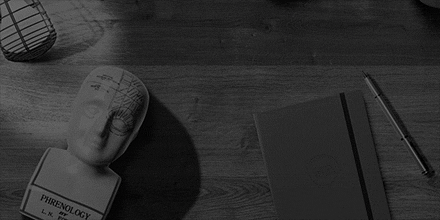


Applying a scientific approach to employee engagement can unlock new levels of performance
Behavioural science has been on the agenda in an increasing number of organisations recently, with targeted attempts to influence behaviour using the principles of the topic. Its potential to drive the decisions and behaviours of humans could drive a revolution in the world of employee engagement.
Let’s start with the definition: behavioural science brings together insights from psychology and economics to study human behaviour. It helps us understand why we make the decisions we do. What information are we using? What mental shortcuts are we taking? How does our environment influence us? What do our preferences – how we react to events both near and far in the future, and what we deem risky or socially acceptable – have to do with it all? And how could all this manifest in our profession?
Without application, science is just theory. Tangible results come from a practical use: deploying the ideas and techniques towards a definitive outcome. That requires an understanding of both worlds: the scientific and the practical.
Increasingly, scarlettabbott is bridging this gap: our expertise in both fields of behavioural science and employee engagement is helping us transform theory into tangible, everyday actions that human resource and internal communication teams can take to drive results in their organisations.
For example, let’s look at a common problem companies encounter: encouraging employee participation in a workplace wellbeing programme. Consider the standard health and wellness messaging we see around us. It might feature a phrase like “look and feel great!” to promote participation.
A behavioural scientist takes a slightly different approach. First, they might think about how people have a tendency to consider rewards we gain in the future to be worth less than gratification we get in the short term. Why? Well just think of what gives you more satisfaction in the moment: the idea of fitting into those slim-fit jeans or devouring that plate of nachos. This tendency – known as time discounting – is at the heart of most poor choices we make, particularly in terms of health and wellbeing.
The messaging of the wellness programme in our example, therefore, needs to find the hook that applies to the present day: how do we make a not-so-fun activity motivating immediately? Our headline message could instead be: “get an instant energy boost.” I don’t know about you but I like the sound of that.
The application of behavioural science also encourages us to expand our thinking towards the challenges we face in large organisations, going beyond traditional communication channels and techniques.
Time for another example. Let’s say, as part of your sustainability efforts, you want to increase the amount of material that people recycle. Typically, this might involve an educational video, a poster and a manager guide. We might talk about the potential to protect the planet or use infographic facts and statistics about how many forests we’ve protected or gallons of water we’ve saved. And we might set some kind of gamification campaign to persuade people to form new habits in exchange for a reward.
Behavioural scientists are here to tell you that all that’s great, but your money could be better spent elsewhere. The idea of ‘defaults’ states that, in general, people go along with whatever choice is already made for them because actively switching to another state requires time, energy and motivation. In this instance, we would create a default state by removing regular rubbish bins and adding many more recycling bins. Getting the regular bins back would require a lot of effort for employees, so they’re more likely to go with the flow and just recycle. This is likely to have a far more immediate and noticeable impact than an awareness campaign alone.
We can apply insights from behavioural science when taking employees on major change journeys. That means looking at the psychology of change, in terms of what specific barriers are preventing people changing and identifying the tailored solutions that help overcome them. People change behaviour when it’s easy, when they’re motivated, and when they feel emotion, so those three ingredients become essential to any communication about change.
We believe behavioural science is an exciting enhancement to our profession. We all know the power of employee testimonials to persuade other people to adopt a new programme or initiative. Behavioural science explains this. Social proof tells us that seeing what other people have done in a similar situation is most impactful in times of uncertainty. An internal communication strategy underpinned by behavioural science, therefore, will deploy colleague voices at precisely the time when people are facing most uncertainty.
Our profession has evolved significantly in the last decade. We’ve achieved the seat at the table that practitioners have long been seeking. We are trusted advisors to senior leaders, we play a significant role in strategic decisions and we represent the voice of the people. It’s our responsibility to make decisions based on something more than intuition alone.
Behavioural science gives internal communication another tool in its arsenal when it comes to tackling major challenges in organisations of any size. It forces us to think differently, and ask what’s really driving the outcome we’re currently seeing and how we can meaningfully influence that.
If you‘re keen to explore how behavioural science can drive change and solve challenges, we‘d love to help.
Workshops
Explore how behavioural science could be deployed to help solve the challenges you’re facing with our behavioural science workshops.
Webinar
Don‘t miss our upcoming free webinar for in-house IC and HR practitioners.
